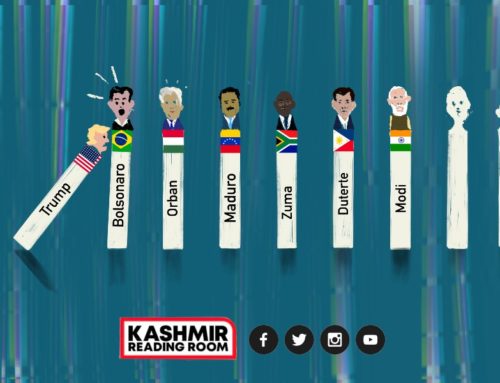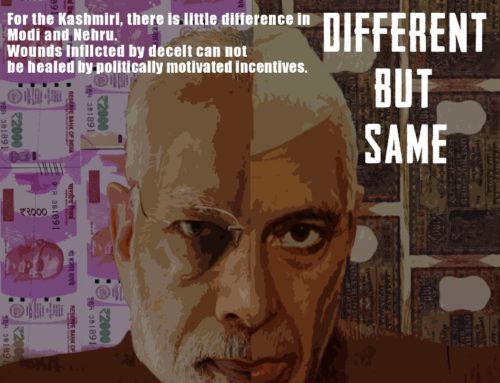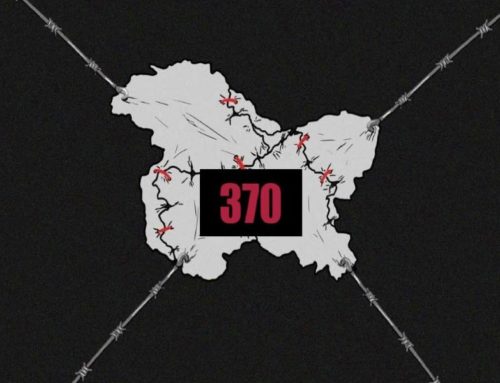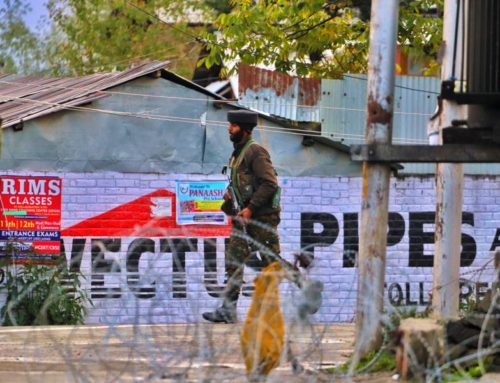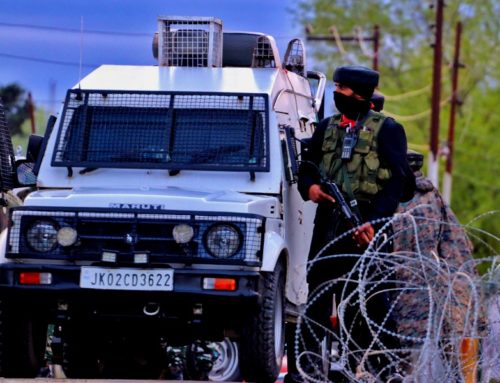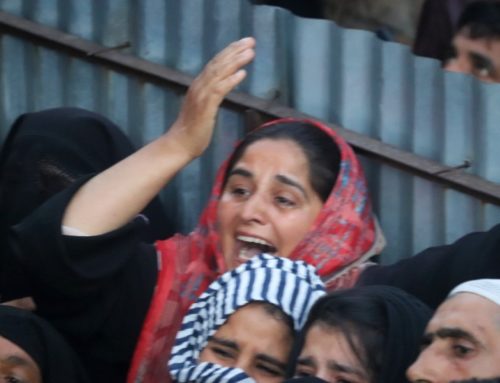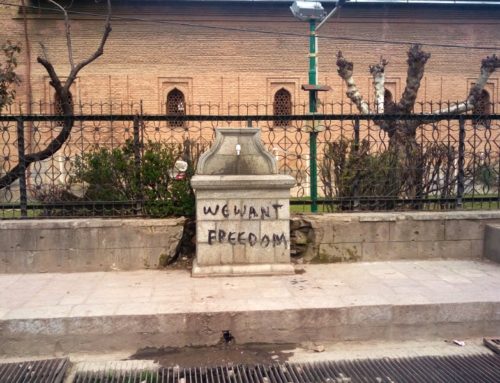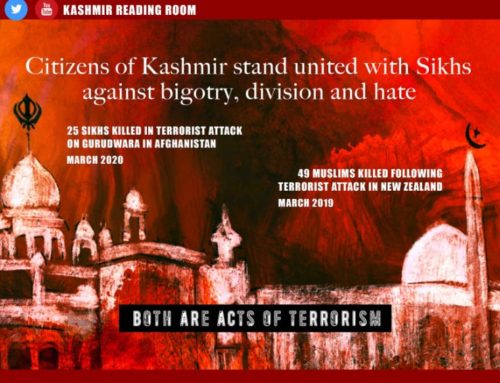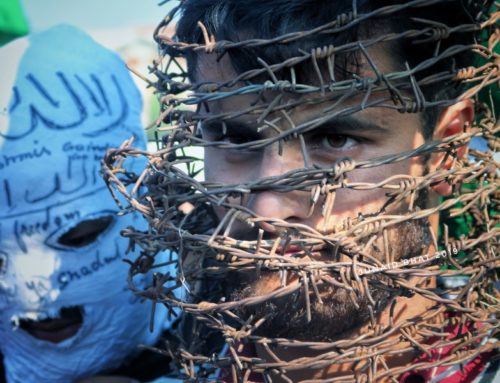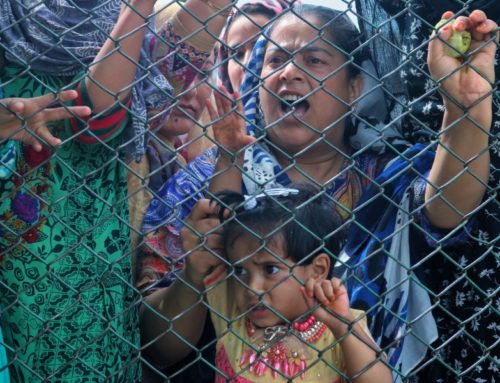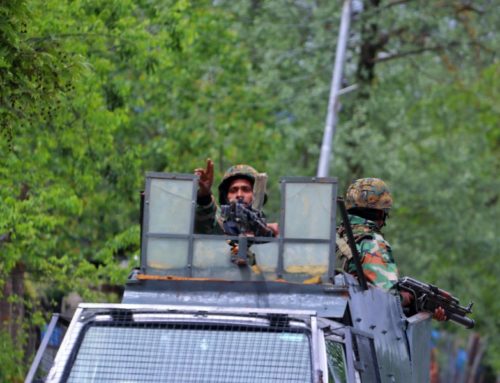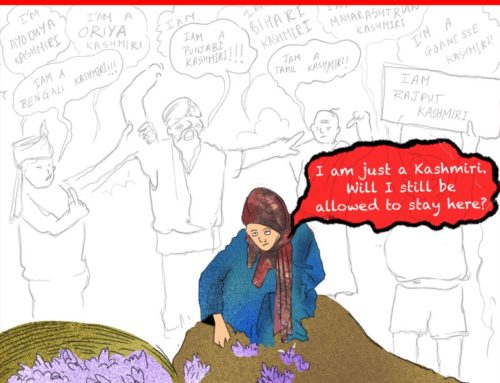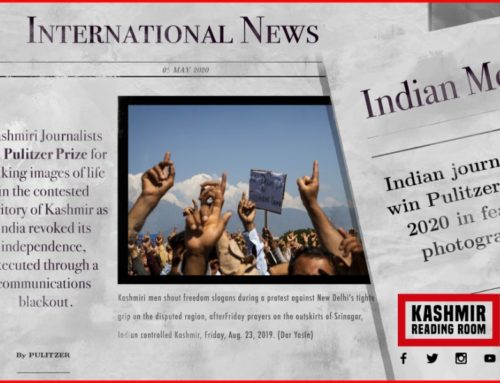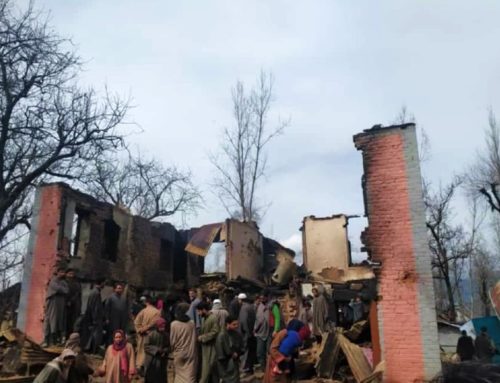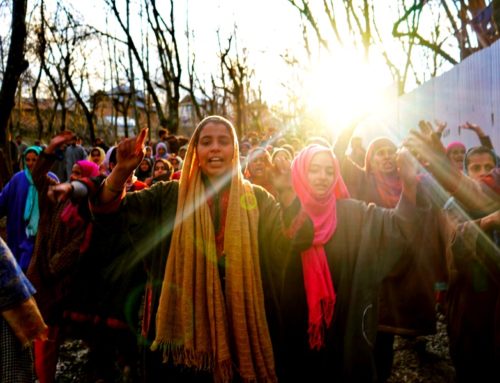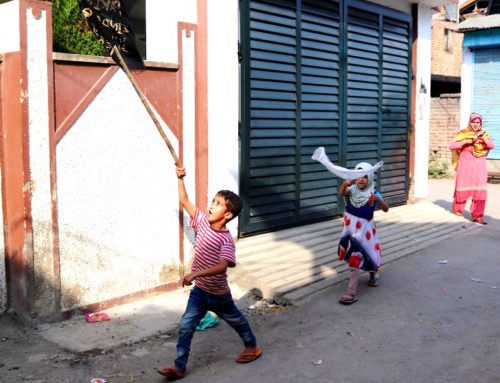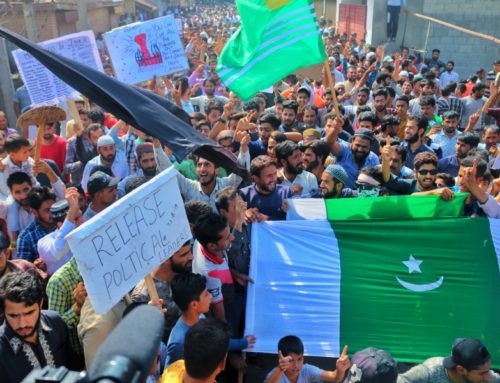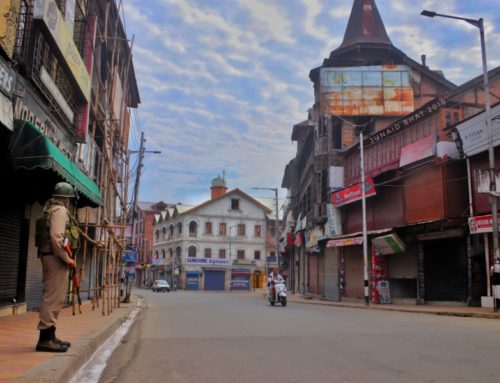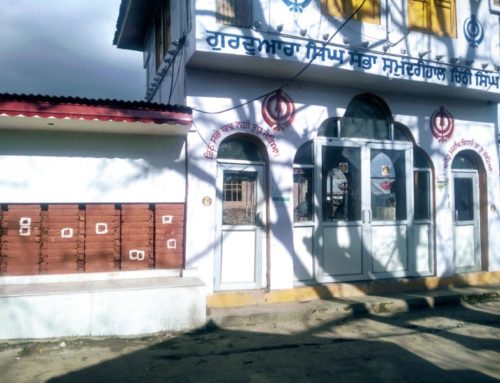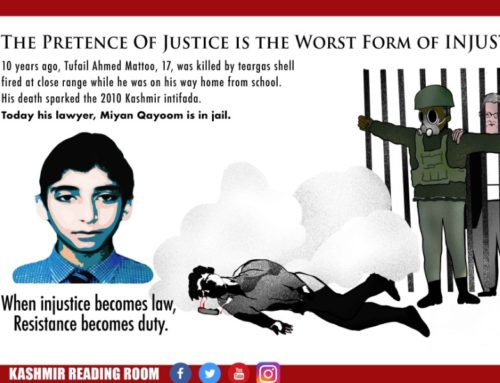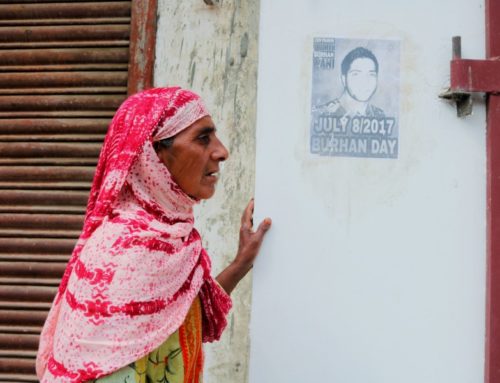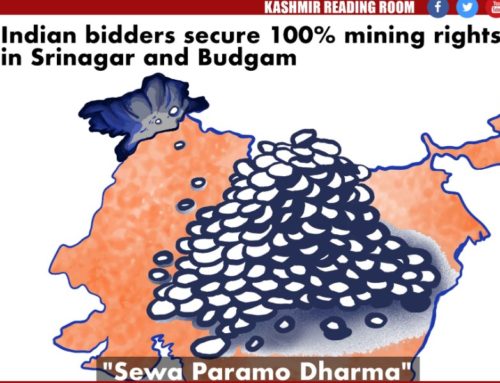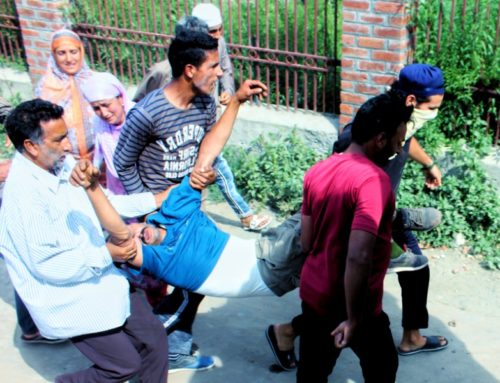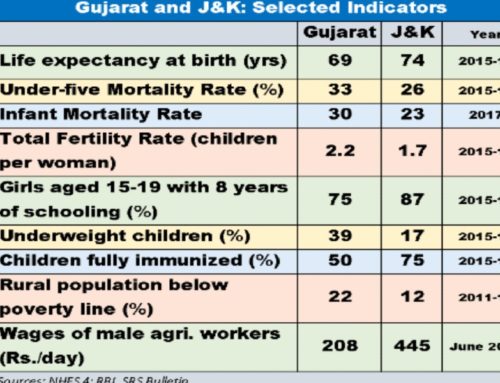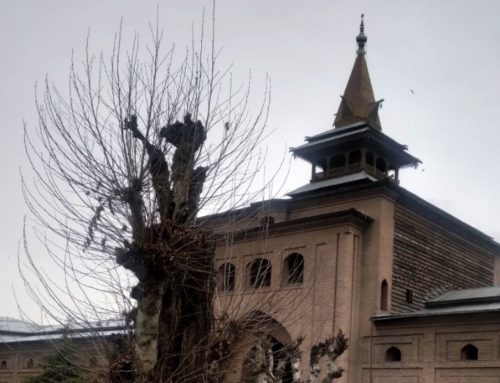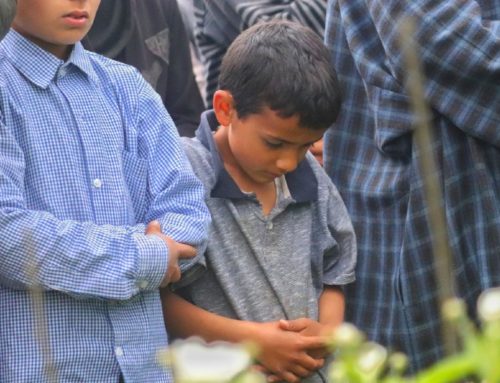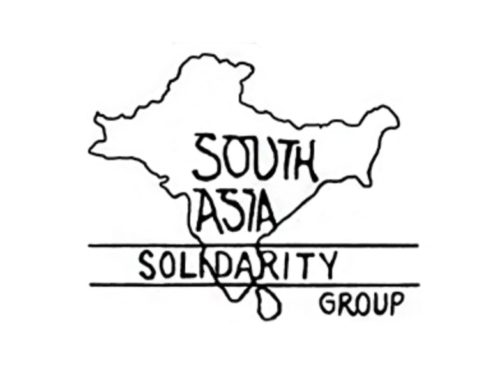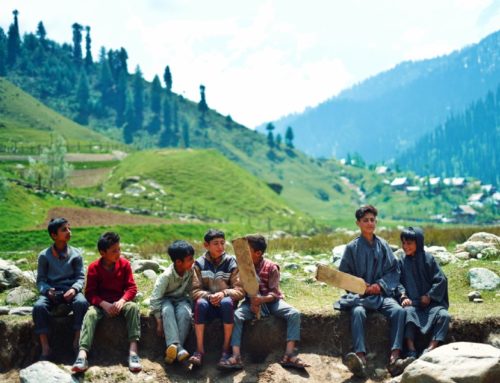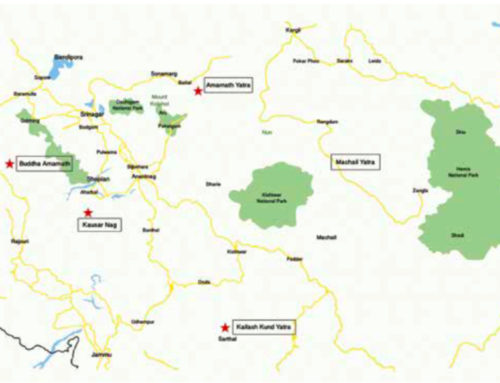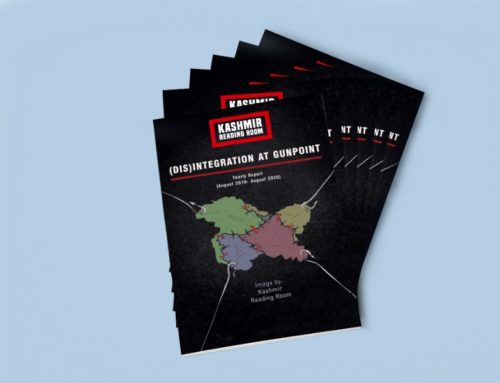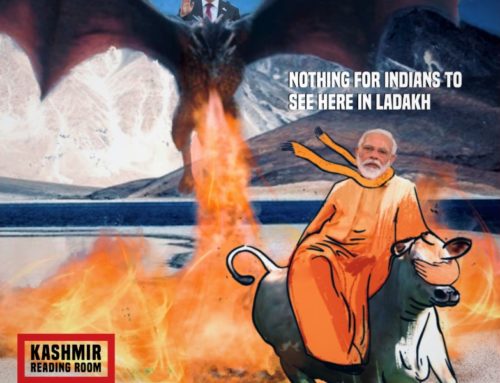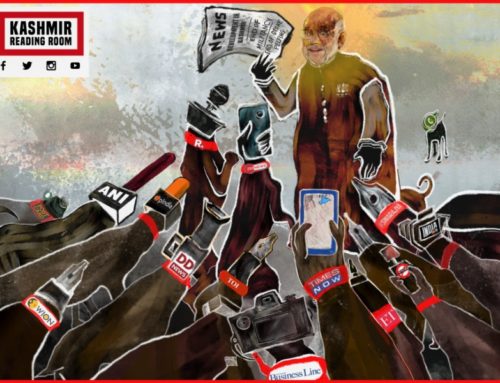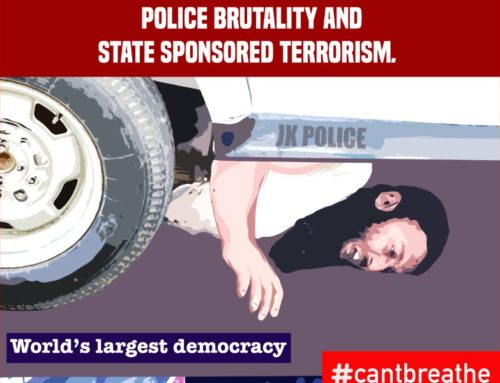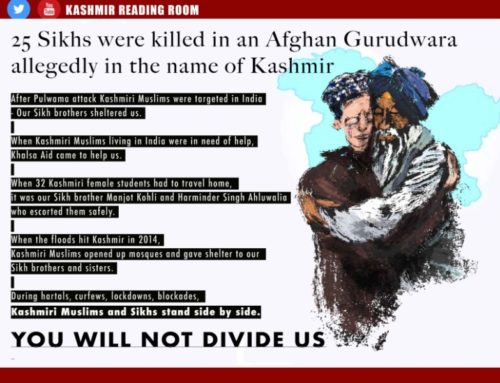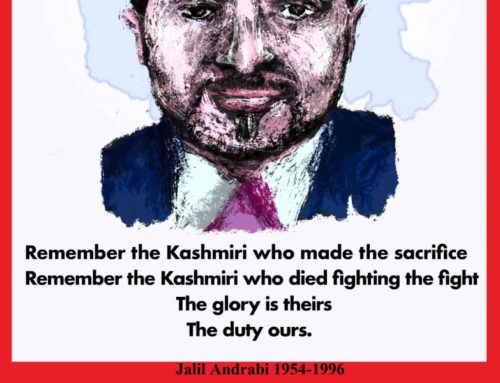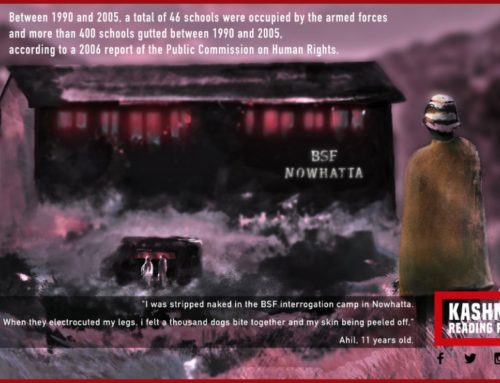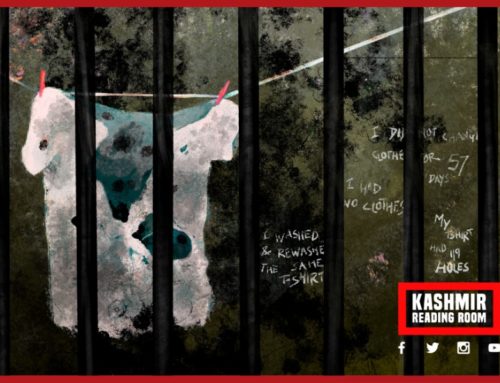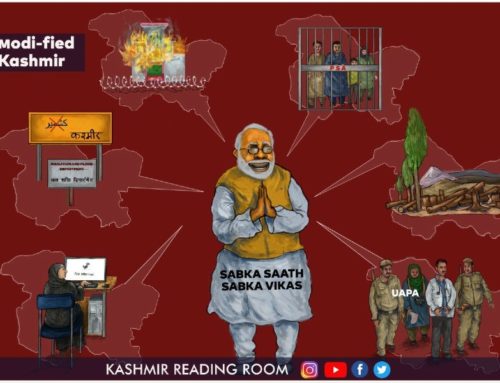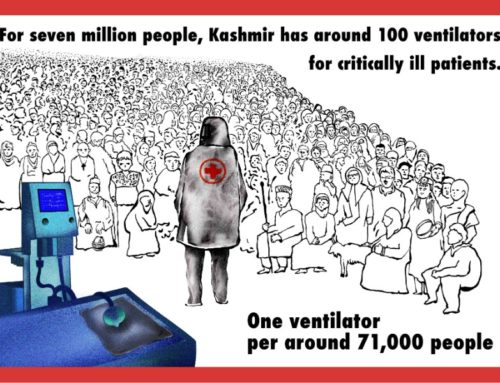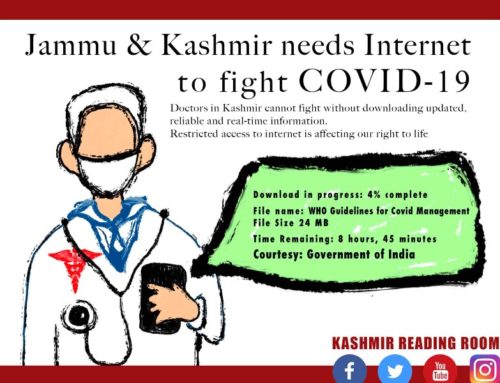Trifurcation to Bifurcation
Autonomy Demands, Regional Politics and Internationalization of the Kashmir Conflict
Amina Mahmood Mir
Sub-regional perspectives
Indian administered Jammu & Kashmir (IAJK) is home to different religions, cultures, ethnicities, languages, and political ideologies. It is not justified to generalize thoughts of any sub-region. The sub-regions of IAJK i.e. Jammu, Ladakh and Kashmir have different political aspirations concerning the resolution of the Kashmir Conflict. From 1846 to 1947, these regions were brought together by the Dogra rule and after 1947, they were held together by the Indian union, without the consent of the people of each respective region. Thus, they had difficulties in understanding each other’s political aspirations because each region had envisaged a different political future for themselves. It is not reasonable to pit them against each other, blame them for the lack of unity, and for having different political aspirations. Hence, it’s imperative to understand the sub-regional perspectives regarding the Kashmir Conflict. The demands of the self-determination groups range from (a) more constitutional rights while being a part of the Indian Union; to (b) a separate sovereign entity.
The way forward should be rooted in creating space for all political groups, enjoying popular public support, to voice their opinions and represent the political interests of their respective regions.
India’s unilateral action
On August 5, the Indian government unilaterally changed the status of Indian Administered Jammu & Kashmir (J&K) by an amendment to Article 370.1Aljazeera (5 August 2019). ‘Kashmir special status explained: What are Articles 370 and 35A?’ Retrieved from https://www.aljazeera.com/news/2019/08/kashmir-special-status-explained-articles-370-35a-190805054643431.html It lacked the involvement and consent of the people of J&K and other stakeholders. The United Nations Security Council (UNSC) has passed several resolutions and continuously emphasized on settling the dispute through a dialogue process involving all stakeholders.2United Nations Digital Library Record: Security Council’s resolutions on Kashmir https://digitallibrary.un.org/search?ln=en&p=Kashmir&f=&rm=&ln=en&sf=&so=d&rg=50&c=United+Nations+Digital+Library+System&of=hb&fti=0&fct__1=Resolutions+and+Decisions&fti=0&fct__1=Resolutions+and+Decisions&fct__2=Security+Council India and Pakistan also signed the Shimla agreement to resolve all the bilateral disputes by mutual consent.3Shimla Agreement: According to the Article 2 (2) of the agreement “the two countries are resolved to settle their differences by peaceful means through bilateral negotiations or by any other peaceful means mutually agreed upon between them. Pending the final settlement of any of the problems between the two countries, neither side shall unilaterally alter the situation, and both shall prevent the organization, assistance or encouragement of any acts detrimental to the maintenance of peaceful and harmonious relation” The article 5 (2) specifically defined the future course of action to resolve the Kashmir Dispute “ In order to initiate the process of the establishment of durable peace, both the Governments agree that: In Jammu and Kashmir, the line of control resulting from the cease-fire of December 17, 1971 shall be respected by both sides without prejudice to the recognized position of either side. Neither side shall seek to alter it unilaterally, irrespective of mutual differences and legal interpretations. Both sides further undertake to refrain from the threat or the use of force in violation of this Line.”
However, the forceful integration of the former state of J&K into the Indian Union, by splitting it into the Union territory of J&K and the Union territory of Ladakh, changed the internationally recognised nature of the disputed regions. This action resulted in the violation of UN resolutions, Shimla Agreement4Nagri, J, Naqash,T, and Ali,Z (19 January 2017) ‘It’s important to note that Pakistan also violated the Shimla Agreement in 1972 by unilaterally abolishing the state subject in Gilgit-Baltistan.’ Dawn. Retrieved from https://www.dawn.com/news/1198967 and many bilateral agreements between India and Pakistan. The alteration of the territorial boundaries and political status of a disputed territory without following due process has been in gross violation of all established understanding and law.
Claims by India, Pakistan and China
The former state of J&K is not only claimed by India and Pakistan. China also claims the territorial ownership of Ladakh and Aksai Chin. The amendment of Article 370 involves the integration of Ladakh into the Indian Union which is China’s strategic interest. Therefore, China participated actively to demonstrate its resentment over India’s unilateral decision to change the boundaries of these disputed regions. It ignored its past Kashmir Conflict policy which was more like circulating a customary statement to satisfy Pakistan’s political interests. In September 2019, Pakistan and China requested an informal UNSC meeting which turned into a traditional United Nations session addressing the Kashmir Conflict.5Bashir, T (2019, September 19). ’Abrogation of Article 370 and Pakistan’s Pathetic Response’. Retrieved from Modern Diplomacy: https://moderndiplomacy.eu/2019/09/19/abrogation-of-article-370-and-pakistans-pathetic-response/
Diplomatic Failure
It can be argued that 2019-2020 was a diplomatic failure for China and Pakistan since the UNSC did not even issue a formal statement. Subsequently, China acted aggressively by engaging in a face-off with Indian troops in Ladakh. It resulted in the death of at least 20 Indian soldiers. The violent face-off between the Indian and Chinese armed forces took place when China claimed territorial rights over Galwan valley which is the part of the Ladakh region administered by India. While China has claimed to support Kashmir’s right to self-determination, their claim on Ladakh is questionable when denying this right to the people of Ladakh.
On the other hand, Pakistan’s Prime Minister Imran Khan nominated himself as the ‘ambassador of Kashmir’ and pledged to fight for the right to self-determination of Kashmiri people.6Business Standard (26 August 2019).’ Imran Khan nominates himself “ambassador” of Kashmir, says ‘will keep fighting till “freedom” is achieved’. Retrieved from https://www.business-standard.com/article/news-ani/imran-khan-nominates-himself-ambassador-of-kashmir-says-will-keep-fighting-till-freedom-is-achieved-119082601024_1.html However, Pakistan missed the crucial deadlines to submit a draft resolution for the scheduled session of the United Nations Human Rights Council (UNHRC).7The Wire (20 September 2019).’ Pakistan Misses Deadline to Submit Resolution on Kashmir in UNHRC’. Retrieved from https://thewire.in/diplomacy/pakistan-kashmir-resolution-unhrc-deadline Ironically, it demonstrated the commitment of the ‘ambassador’ towards the Kashmiri people. This is reminiscent of an earlier diplomatic blunder when the Pakistani representative to the United Nations relied on a Palestinian girl’s image to highlight the condition of pellet victims in Kashmir. In order to demonstrate solidarity with the marginalized people, one must not deprive them of their own agency. It is also very important to not misrepresent the facts about the oppressed people because it provides an opportunity to question the legitimacy of their demands. Hence, Pakistan needs to change its policy from representing Kashmiris to amplifying the Kashmiri voices.
India-China Conflict
India’s authoritarian approach towards the resolution of Kashmir Conflict, the rise of Hindutva politics and discriminatory state policies aimed at minorities has severely dented India’s soft image.8Thapar, K. (5 October 2019). ‘How the world sees India’s Kashmir Policy, writes Karan Thapar’. Hindustan Times. Retrieved from https://www.hindustantimes.com/columns/how-the-world-sees-india-s-kashmir-policy-opinion/story-MwWJ60CuODsqAsjlw0Tf7J.html Quick Take ( 23 October 2019). ‘Forget US Congress criticism on Kashmir; India must do the right thing’. Business Line. Retrieved from https://www.thehindubusinessline.com/opinion/quick-take/forget-us-congress-panel-criticism-on-kashmir-india-must-do-the-right-thing-for-its-own-sake/article29775715.ece Bruke, J. (5 August 2019) ‘India’s cancellation of Kashmir’s special status will have consequences’. The Guardian. Retrieved from https://www.theguardian.com/world/2019/aug/05/india-cancellation-of-kashmir-special-status-will-have-consequences Yet, the economic interests of the nation-states around the world favored India’s position in the global political amphitheater over grave human rights violations.
There was no substantial international political development on Kashmir against the abrogation of autonomy and blanket communication blockade in Kashmir. Some leaders issued a token condemnation, but no policy action or concrete repercussion followed. China-India faceoff in Spring 2020 changed the political debates and the Kashmir Conflict was again the epicenter of political debates regarding the sub-continent. However, no international or regional organization made an effort to learn about the political aspirations of the people of Jammu, Ladakh and Kashmir and failed to acknowledge their reaction to the recent political developments regarding the Kashmir Conflict.
Sub-regional Difference in Perception
The response to the integration of the former State of J&K was different in Jammu, Ladakh and Kashmir. The political groups in Jammu and Ladakh have a history of demanding more constitutional rights in the form of a separate union territory or statehood.9Mir, A. M. (2018, September 30). ‘Jammu & Kashmir and Trifurcation: why it matters’. Kashmir Connected. Retrieved from: http://www.kashmirconnected.com/articles–reports/jammu-kashmir-and-trifurcation-why-it-matters-by-amina-mahmood-mir Ladakh Buddhist Association (LBA), Jammu & Kashmir National Panthers Party (JKNPP), Jammu Praja Parishad and Jammu State Morcha (JSM) are a few regional political groups of Jammu and Ladakh; who have struggled for regional autonomy. They have constantly struggled for the complete integration of Jammu and Ladakh into the Indian union.
Virender Gupta (former JSM president) linked the trifurcation with the resolution of the Kashmir conflict and stated, “The trifurcation or reorganisation of Jammu and Kashmir is in the national interest as well as in the interest of all three regions of the state. It will free Jammu and Ladakh from Kashmiri dominance. The reorganisation will go a long way in solving the Kashmir imbroglio.”10Hindustan Times (1 August 2013).’ JSM to revive campaign seeking statehood for Jammu’. Hindustan Times. Retrieved from https://www.hindustantimes.com/india/jsm-to-revive-campaign-seeking-statehood-for-jammu/story-C6UJBjXf8N6CIBDQqewa3J.html It must be added, however, that there has never been any referendum in Jammu or Ladakh on this issue – so while there have always been voices that seek separate status, there is no conclusive proof that these are a majority in any region. Of these, only Leh has a sustained campaign for separation from J&K. In this regard, the Ladakh Buddhist Association started a movement in Ladakh in 1989, demanding the status of Union Territory. The argument for the demand of the UT status was the alleged discriminatory policies towards the people of Ladakh.11Puri, L (17 November 2019). ‘Jammu and Kashmir: complex realities after bifurcation’. The Telegraph. Retrieved from https://www.telegraphindia.com/opinion/jammu-and-kashmir-complex-realities-after-bifurcation/cid/1719958 It became a mass movement and resulted in Ladakh getting an Autonomous Hill Council while the state was placed under President’s Rule for 6 years.
Reaction of pro-India political groups
Kashmiri political groups favoring Kashmir’s integration with India, always opposed the trifurcation of the state on communal lines. Omar Abdullah, President of Kashmir based Jammu & Kashmir National Conference (JKNC) said, “The very talk of separating Jammu, Kashmir and Ladakh is falling in line with the two-nation theory, which our party has been opposing and will continue to oppose… Jammu & Kashmir is the symbol of secular ethos which people like these (the RSS) are not able to digest.”12The Milli Gazette. (4 July 2000). ‘Trifurcation of J&K rejected’. Milli Gazette. Retrieved from https://www.milligazette.com/Archives/15072002/1507200231.htm
Similarly, Mufti Mohammad Sayyed, late president of Jammu & Kashmir Peoples Democratic Party (JKPDP) supported Omar Abdullah and stated, “These irresponsible demands should be condemned and all attempts to divide the state should be resisted. When there is every possibility of restoration of peace in the state, raising such demands sends a wrong message to the people of the state as well as the international community.”13ibid.
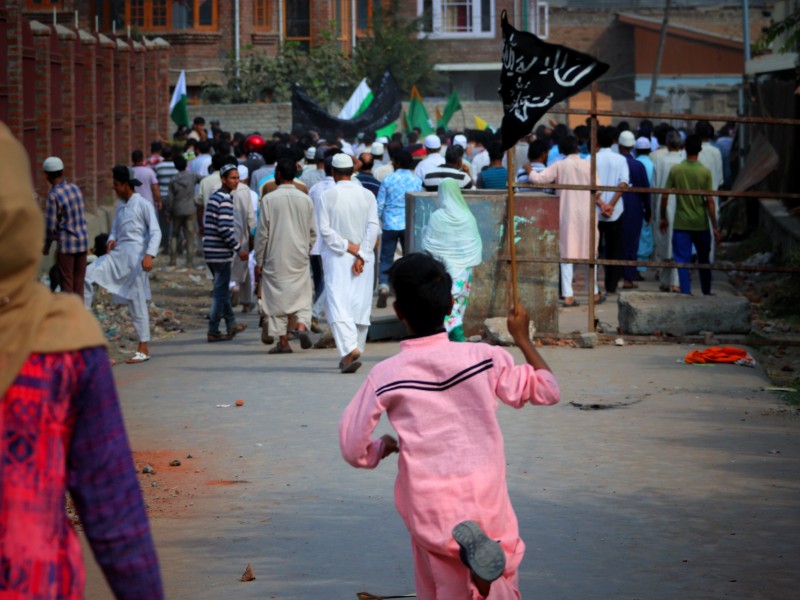
Reaction to abrogation of autonomy
The reaction to the effective amendment of Article 370 and 35A by the Indian Union was mixed in all these regions. Article 370 was only relevant in Kashmir because of the psychological attachment of Kashmiri people to it. The idea of Article 370 as a protection against Indian dominance was sold to Kashmiri people for many years. In fact, it had been rescinded a long time ago through various Presidential Orders. On the other hand, some groups in Jammu and Ladakh had seen it as an obstacle to their Constitutional right and regional developments.
Heavy restrictions were imposed in Kashmir fearing the harsh reaction from the people. There was complete communication blockade and all basic human rights were suspended in addition to the prevailing subjugation of the people of Kashmir.14Kashmir Times. (15 November 2019). ‘Kashmir communication blockade, art 370 abrogation; Sc defers hearing to dec 10, asks centre to file counter affidavit by nov 22’. Kashmir Times. Retrieved from Kashmir Times: http://www.kashmirtimes.com/newsdet.aspx?q=96362 The political groups demanding the right to self-determination were either already in jail or placed under house arrest. The BJP government did not even spare the pro-India politicians and placed them under house arrest.15Zargar, S (26 December 2019). ’Kashmiri leaders released from detention are silent on Article 370’. Scroll.in. Retrieved from https://scroll.in/article/947142/kashmiri-leaders-released-from-detention-are-silent-on-article-370-heres-why Several political leaders were released after signing the political bonds, agreeing to stay quiet and not speak against this unilateral decision of the state.16Mir, H (3 March 2020). ‘New pro-India party launched in Jammu and Kashmir’. AA. Retrieved from https://www.aa.com.tr/en/asia-pacific/new-pro-india-party-launched-in-jammu-and-kashmir/1758756 The shocking abrogation of autonomy psychologically affected all the political groups though with completely different political ideologies.
The sub-regional factions supporting the ruling nationalist party celebrated it considering a fair deal to end all the discriminatory policies in Jammu and Ladakh. However, the amendment of Article 370 was not celebrated as homogeneously as it was claimed by the Indian media. The political groups who always demanded the elimination of Article 35A and 370 started showing concern when they realised that there will be less political rights and employment opportunities and more exploitation of resources.17Chowdhary, R (31 October 2019). ‘While Kashmir Is Silenced, Jammu and Ladakh Are Muttering Anxiously’. The Wire. Retrieved from https://thewire.in/government/while-kashmir-is-silenced-jammu-and-ladakh-are-muttering-anxiously People who celebrated in the beginning, to demonstrate the political and ideological differences with Kashmir; also started questioning the Indian state’s unilateral policies when the lack of a clear roadmap and future was made obvious.
Muslim dominated Kargil protested against the amendment of Article 370 and considered its violation of their fundamental rights to decide their political future.18The New Indian Express (8 August 2019). ‘Article 370: Protesters detained for defying restrictions in Kargil’. The New Indian Express. Retrieved from https://www.newindianexpress.com/nation/2019/aug/08/article-370-protesters-detained-for-defying-restrictions-in-kargil–2016036.html The political groups of Ladakh have been struggling for decades for their Constitutional rights and regional empowerment. However, they didn’t appreciate the fact that they were not consulted before granting Ladakh the Union Territory status, that too without a Legislative Assembly.19Trivedi, D (27 September 2019). ’Cautious welcome in Ladakh to Abrogation of Articles 370 and 35A’. The Hindu. Retrieved from https://frontline.thehindu.com/cover-story/article29382356.ece The absence of Ladakhi people in the decision-making process is equivalent to denying them the right to represent their political interests.
The bifurcation of the former state of J&K seemed a very attractive marketing project to create a massive vote bank in Jammu, Ladakh and most importantly in India. However, the BJP failed to calculate the risk factors before implementing their hard-line Kashmir policy and did not realise how much this move would cost India’s international image. The attempt to annex Indian Administered Jammu and Kashmir by revoking Article 370 forced the UNSC to discuss the Kashmir Conflict after nearly five decades of India’s successful attempts to make it a bilateral issue between India and Pakistan. It also moved China to advance in the internationally recognised disputed territory of Ladakh without worrying about International condemnation since China was now able to claim that it was merely reacting to India’s unilateral action on Article 370.
The United Nation’s constructive efforts are needed to resolve the Kashmir dispute, considering the contemporary political developments. However, its resolutions fail to fully grasp the multiple dimensions of the conflict and involvement of stakeholders at various levels. In my view, it is not appropriate to settle the Kashmir dispute in 2020 by focusing on political developments of 1947. The Kashmir Conflict is a political dispute affecting the lives of millions of people trapped in this conflict. It is in search of a political settlement which is not possible without the effective and active engagement of all the regions of the former state of J&K along with other stakeholders and the international community. Any statements short of concrete action do not yield results and are a mere cosmetic eyewash for the people of this conflict-ridden region.
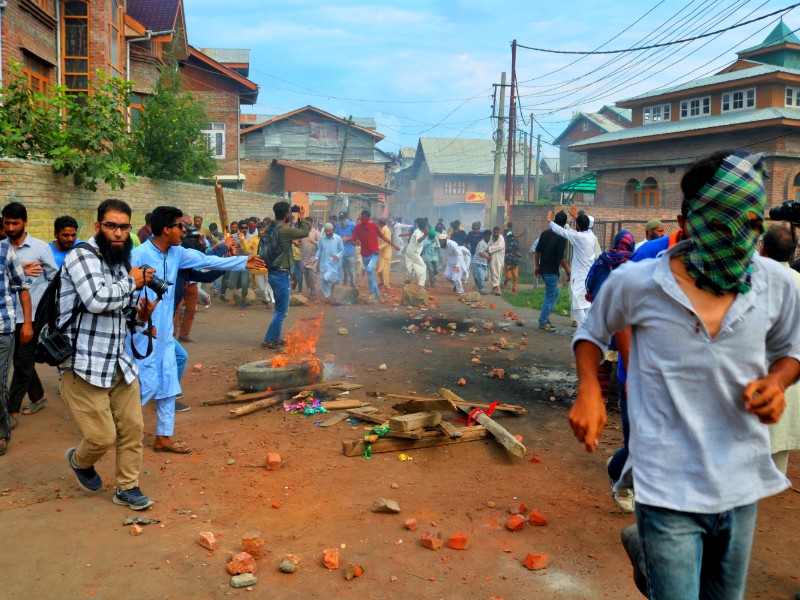
About the Author: Amina is a doctoral researcher at the Centre for the Study of Democracy in the School of Social Sciences at the University of Westminster. Her focus is on regional politics in Kashmir.
All our work is available free of charge, if you wish to support our work by making a donation, so that we can continue to provide this vital service, please do so here.
This opinion article forms part of Kashmir Reading Room’s Yearly Report Aug 2019-Aug 2020. You can view the full report by clicking on the button below.
Disclaimer
The author(s) of every article and piece of content appearing within this website is/are solely responsible for the content thereof; all views, thoughts and opinions expressed in all content published on this site belong solely to the author of the article and shall not constitute or be deemed to constitute any representation by JKLPP, Kashmir Reading Room, the author’s employer, organisation, committee or other group or individual, in that the text and information presented therein are correct or sufficient to support the conclusions reached.
